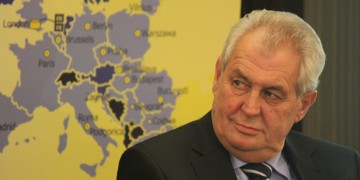The misunderstood Visegrad Group
This summer witnessed quite an intensive exchange of opinions about the future of the Visegrad Group (V4) in the light of the events in Ukraine. It started with Edward Lucas (http://www.cepolicy.org/publications/grappling-irrelevance-v4-after-its-split-ukraine) claiming that the V4 is a group ‘without a mission’ and that the Ukraine crisis has erased it from ‘the geopolitical map’. A wave of articles followed.
It was easy to spot that analysts and foreign relations experts from the Central European region had the tendency to defend the V4, while those from the Western Europe tended to be more critical (Ian Bond http://www.cepolicy.org/publications/view-central-europe-does-v4-have-future-0 and Jacques Rupnik http://www.cepolicy.org/publications/view-central-europe-does-v4-have-future). It is therefore not entirely unreasonable to propose that the general Western view on the V4 is far more sceptical than the Central European one. In this article, I will argue that the Western observers may have misunderstood the nature of the V4 and that their criticism is therefore not entirely valid.
The Central European experts came up with two main counterarguments in the defence of the V4. The first one is that the V4 is an inadequate structure to counter Russia’s policies, be it with actions or proclamations – it simply never intended to play such a role in international politics. This however does not make the V4 completely irrelevant for regional cooperation, e.g. for building infrastructure or for increasing energy security, which Edward Lucas himself admits. In other words – the V4 is useful enough as it is, and if there are disagreements over issues such as the crisis in Ukraine, it is better to ignore them (and possibly seek consensus at a different level) for the sake of a more fruitful cooperation in other areas.
There are reasons why western observers may misunderstand the nature of the V4. The first is that there are many generalizations about the former Soviet Bloc countries – but these generalizations do not hold any more. It is not somehow self-evident that the V4 should unite against Russia – to Central Europe, it is a trade partner. The second fallacy is connected to the perception of the V4 – it may be perceived in the West as a much tighter group than it really is. As Daniel Bartha notes (http://www.cepolicy.org/publications/debating-v4-hungarian-perspective), the V4 cooperation has a very high standard and V4 prime ministers are capable of having personal and frank discussions about controversial issues. This does not automatically mean they will agree with each other, and neither does it mean that if they do not agree they will cease to be friends. It is inherent for that friendship that the Central Europeans are able to dismiss their disagreements with ease – by no means should it be interpreted as a symptom of a decaying regional group. But in defence of some observers one thing has to be said: the V4 itself is largely responsible for its image – for example the announced Visegrad EU Battlegroup (http://visegradrevue.eu/?p=806) perhaps sends out a stronger message about the nature of the partnership than it should.
The second counterargument is slightly offensive, but nevertheless valid. Regarding Ukraine, the V4 should not be blamed for its lack of unity more than any other organization, including the EU and NATO – they too struggle somewhat to find common ground on controversial issues, but when it is found, it always easily overshadows and makes irrelevant any common stance of the V4. It should also be added than neither ‘the other side’, that is Putin’s Eurasian Customs Union, is completely united over Ukraine. There is yet one more observation: sometimes it actually seems that, on the contrary, wider cooperation is unwelcome and clumsy. When the French intervened in Mali, they were not too happy about the suggestion that they could be assisted by an EU Battlegroup (a formation suitable specifically for Mali-like scenarios), and neither were the Poles, who were leading the unit (and who are now, conversely, hawkish concerning Russia). This is of course not to suggest that the notion of the V4 adopting a tough stance towards Russia is identical to Poland sending its EU Battlegroup component to Mali, but it illustrates well the point about diverse interests of various governments when it comes to security, even when they are members of the same multilateral organizations.
Ultimately the Western observers are right – it would be nice to see Central Europe united on such a key issue as the Ukrainian crisis. But it is not, because the governments of the Central European countries have varying priorities (like governments anywhere). Perhaps we should instead focus on more relevant partnerships that can have concrete positive effects: for example the Polish-Baltic cooperation can greatly contribute to the European security (more than anything the V4 could ever achieve) without actually exposing the rest of the V4 to Russian repercussions. To what extent is such an approach moral, as it intuitively seems fair that any burdens caused by Russian repercussions should be shared evenly by the Allies, is a different topic. However, it needs to be reiterated that the right platform for collective security policy is NATO, to some extent the EU, but not the V4, which is clearly well aware of its limits, of the costs of overcoming them and of the futility of such a project. The lesson seems to be that just because some international structure or group exists, it is not always the best idea to ascribe it inadequate tasks and expect it to perform well, just because the structure is ‘already there’.

